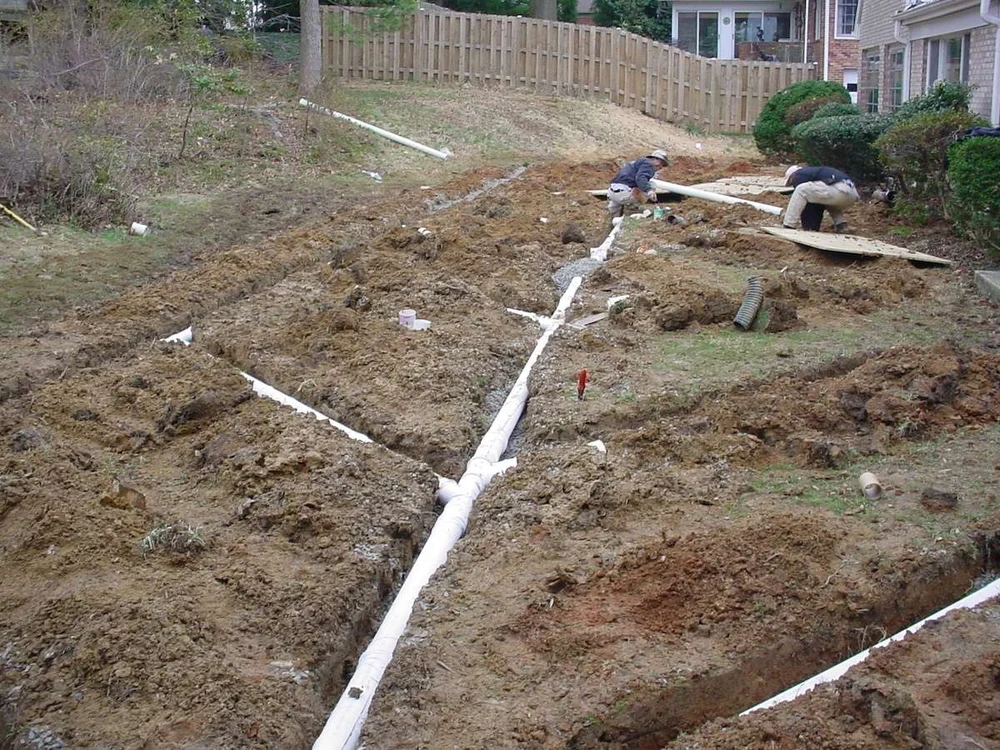When it comes to maintaining a beautiful and functional garden in Coventry, one of the most important aspects to consider is proper drainage. Poor drainage can lead to waterlogging, root rot, and other issues that can damage your plants, lawn, and even your property’s foundation. Fortunately, there are various garden drainage system available that can help prevent these problems. In this article, we’ll explore the top drainage solutions for every yard in Coventry, ensuring your garden remains healthy and flourishing all year round.
1. French Drains: The Classic Solution for Yard Drainage
French drains are one of the most popular and effective garden drainage solutions in Coventry. A French drain consists of a trench filled with gravel or rock that houses a perforated pipe, which allows water to flow away from problem areas. This system is particularly useful for draining areas that tend to collect excessive water, such as low-lying spots or areas near the foundation of your home.
Advantages:
- Highly effective at redirecting surface water and groundwater.
- Can be adapted to different types of yards, including those with challenging terrains.
- Low maintenance once installed.
Best for: Properties with heavy rainfall or areas with poor natural drainage.
2. Surface Water Drains: Efficient for Surface Runoff
Surface water drains are another effective drainage solution, ideal for areas where surface water runoff is a concern. These drains typically feature a network of grates or slotted channels placed along the garden’s pathways, patios, or around the perimeter. They allow water to flow into a drainage pipe or soakaway, preventing puddles and erosion in your garden.
Advantages:
- Ideal for controlling surface water in high-traffic areas.
- Prevents soil erosion and standing water.
- Customizable to blend in with the landscape design.
Best for: Lawns, patios, driveways, and paths that experience heavy rainfall.
3. Soakaways: Natural Drainage Solutions
A soakaway is a natural drainage solution that involves digging a deep pit and filling it with rubble or gravel. The idea is to direct excess water into the soakaway, allowing it to slowly percolate back into the ground. This system is perfect for gardens with soil that drains well and doesn’t retain excessive water.
Advantages:
- Environmentally friendly option.
- Reduces the risk of flooding by dispersing water into the ground.
- Low maintenance, as it requires little to no ongoing care.
Best for: Gardens with well-draining soil and minimal surface runoff.
4. Gutter and Downpipe Systems: Keep Roof Water at Bay
Gutter and downpipe systems are an essential part of any garden drainage plan, particularly for homes with larger roofs. These systems collect rainwater from your roof and direct it away from the house, preventing the build-up of excess water near the foundation. Properly maintained gutters and downpipes help protect your garden from flooding and waterlogging.
Advantages:
- Prevents excess water from pooling around the home’s foundation.
- Minimizes erosion and water damage to your yard.
- Can be connected to other drainage systems, such as French drains or soakaways.
Best for: Homes with large roofs or those prone to water runoff.
5. Sump Pumps: Effective for Basements and Lower Areas
For properties with a basement or lower-lying garden areas that tend to collect water, sump pumps are an excellent drainage option. These pumps work by collecting water from the sump pit and then pumping it away from the property, often to a designated drainage area. Sump pumps can be installed in conjunction with other drainage systems to keep your yard dry and safe.
Advantages:
- Removes excess water from basements and low-lying areas.
- Ensures dry conditions year-round, even during heavy rainfall.
- Helps prevent basement flooding and soil erosion.
Best for: Properties with basements or gardens situated in naturally low-lying areas.

6. Trench Drains: High Capacity Drainage for Large Areas
Trench drains are another reliable drainage solution for larger gardens or properties. These systems are typically installed along the perimeter of driveways, large patios, or other expansive garden areas. Trench drains are designed to collect and direct water quickly, preventing large puddles and flooding from forming on your property.
Advantages:
- Can handle large volumes of water.
- Ideal for use in large yards, commercial properties, or areas with extensive impervious surfaces.
- Can be installed with aesthetic covers, such as decorative grates.
Best for: Large gardens, driveways, and commercial spaces in Coventry.
7. Permeable Paving: A Stylish Way to Manage Water
Permeable paving is a modern solution that allows water to pass through the surface, reducing runoff and promoting natural drainage. This paving option is ideal for garden paths, patios, and driveways, as it absorbs rainwater and redirects it into the ground. Not only does it provide an environmentally friendly drainage solution, but it also adds a stylish touch to your garden.
Advantages:
- A sustainable and eco-friendly option.
- Reduces surface runoff and promotes groundwater recharge.
- Comes in various styles and materials, from gravel to porous concrete.
Best for: Garden paths, driveways, and patios in areas with moderate rainfall.
Conclusion
Investing in the right garden drainage system is crucial to maintaining a healthy and thriving garden in Coventry. Whether you choose a French drain, soakaway, or sump pump, each drainage solution offers unique benefits to keep your garden dry and free from water damage. By selecting the most appropriate drainage system for your specific needs, you can ensure that your yard remains a beautiful and functional space, no matter the weather.
If you’re unsure which drainage system is best for your property, it’s always a good idea to consult with a professional landscaper or drainage expert to find the ideal solution for your garden.
